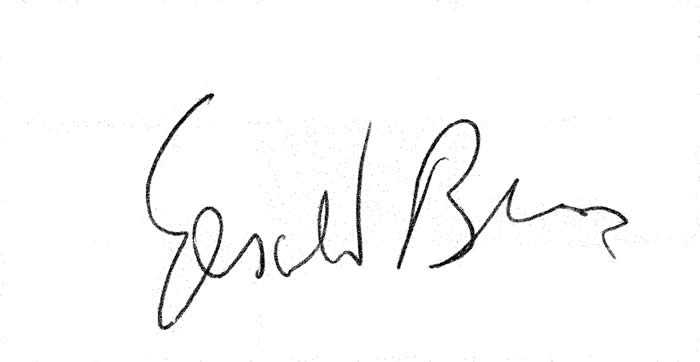
A woman I loved and still do said once to damn her brother, "He thinks there's
a difference between public and private." Troubled by incest for years in a house
full of brothers, she knew what she was talking about, her tone affectionate dismissal.
When Ann's cat died she said to its spirit, "Take all my love and go." I'm not sure
that's legal but it's what she said. It slept a night ago at the foot of my bed.
Tonight I made seafood omelets for Leuth and Bill, trashed from the strain of moving in.
It was like feeding field voles. These notes, familiarity of Cowper's letters or Lamb's,
soothe in a difficult time, remind me context exists, the matrix of friends a list for me
this solitary New Year's. Strain infects everything but not the way a sunset does.
The trees presumably don't have to handle the sunset, except to change what they respire.
Mood, taken as tinge, is not primarily perception but its effect on the body, hence Coleridge's
moves in Christabel, the leaf dancing at the end of a branch a body like Geraldine's.
A shaman writing poems addresses spirit, lodged in bodies or at liberty, prrut.
A really good deeply incised New Mexican pot, black, smaller than a pear, alters its cabinet,
like nothing else in Oregon except other deeply incised blackware, but this one particularly fine.
Its gouges, so precise you could drop Star Wars bombs in, seem made in the mind. The
body, touch, sight, the senses for coolness of surface, react to it through glass. I'd like
to own it but in a sense do, feel as if chosen to admire it. I Ching on a shelf with three
holed coins on top is like that shelved, not like the other books, end of a row. For things
like that "occult" drops out, becomes less relevant. Edward showed me color plates of a new Book
of the Dead translation, proudly, odd to see more than a single section displayed, like a magazine.
The ritualization of books is interesting, David's King in Yellow bound in black goat, leather stamped in
blind or incised for jewels. There's no good way to bind Paradise Lost, or Tristram Shandy,
to "express" how these texts occupy the mind, bodiless because they are already bodies,
and this may be how shamans look at anything, a tree. Geraldine's withered integument is bark.
The horror he wants us to feel, that commentators hate ("Come on! Her side's rough, so
what?") is meant to be like Lamia, a loveliness that isn't quite human. Symbolists
did that, wanted a meteor for Poe's grave marker, high in iron content, amino acid chains.
Absurdity invades our solemnity. Dr. Katz sees patients duller than himself, Hillman and Boer
write Freud's Own Cookbook, full of puns, Tom Moore stakes out the Meditation, mock Pascal.
Life's enjoyable as the Paradiso. You look at somebody and her whole soul looks back at you,
like the car Scott describes that ran into a brick wall, left its imprint, headlights, grill, license plate.
The cliché form of that, which may not be as much a cliché as we thought, is genre
paintings by Rossetti, Dante and Beatrice Meeting on the Bridge, like that, or Constable's
feelings looking at a sketch of clouds, fixed, the alcohol drying out of the paint.
My letter to Bob Harrison said why I prefer writers with interesting minds; he
thought I sent him poems deliberately teeming with allusions, in response to his.
I listed what the friends I write to care about -- astrophysics, quantum mechanics, Oriental
religious texts, the tagging of obscure or nameless emotions (Sheila Murphy), Dante studies,
bowling -- areas of expertise. DeLisa thinks about medieval stained glass.
Searcy did arms and armor well enough for museums to consult him. Jordan thinks
about objects like a trilingual Druid, writes well about clouds, looks at Constable.
Most writers, it seems, keep away from things everybody doesn't know, afraid to lose
an audience like themselves. I do art history, philosophy, Victorian religion and Edwardian
conjuring, show slides of paintings when I read poems to audiences about them.
Selecting out the lunatic fringe is one of the great questions, addressed in Newman's Grammar of Assent
and lectures on the notion of a University, the breadth that saved you from his brother's crotchets
(he thought) obtainable at Oxford, where Hopkins thought the spires conspired with trees
by way of bells as if steeped in leaves, a kind of audible tea, John Henry fighting off
the incredible peasantness of Italian devotion. Where's that now? just a few sonnets, a couple of poems
about shipwrecks. They thought to get it wrong was to be castaways, their "thoughts" on
such matters in the same English as Lewis Carroll's, writing notices signed Rabbit.
Copyright Gerald Burns 1995-1997